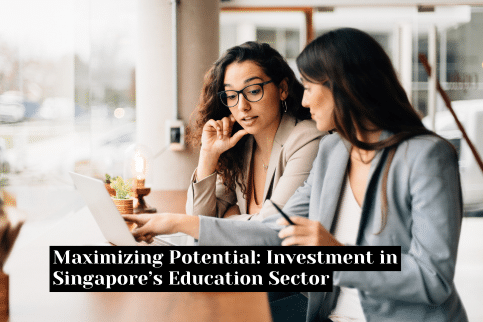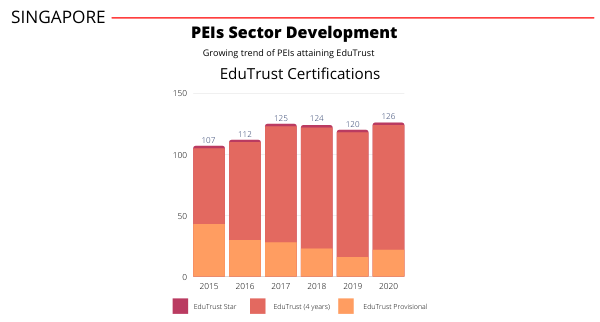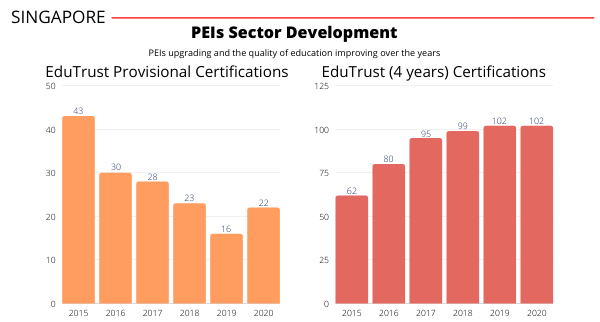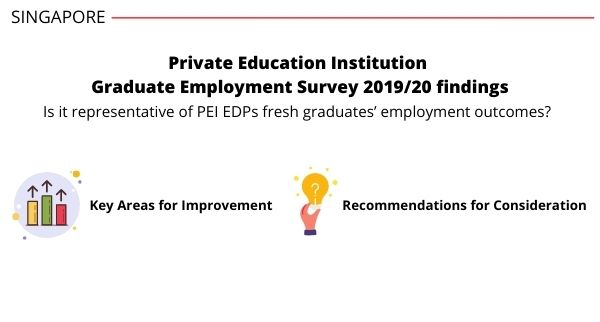Singapore’s education sector offers one of the most promising and stable investment opportunities in the region. With a world-class reputation, a commitment to innovation, and a forward-thinking regulatory framework, the country provides fertile ground for investors and educational institutions looking to expand their reach and impact. In recent years, investment in Singapore’s education sector has grown exponentially, driven by both government initiatives and private sector participation. Here’s why investing in Singapore’s education is not only worth it, but also a strategic move for long-term growth.
A Hub for Global Talent
Singapore has long been recognized for its world-class education system, consistently ranking among the top in global assessments for academic excellence. The country’s focus on maintaining high educational standards, along with its strategic investments in technology and innovation, has positioned Singapore as a leading education hub in Asia. Back in April 2022, it is reported that Singapore hosts approximately 65,000 international students, hailing from various parts of the world (The Business Times, 2022). This influx of foreign students contributes to the robust demand for education services, especially in private education institutions (PEIs), international schools, and universities. The country’s education system is renowned for aligning with global employment markets, ensuring that graduates are well-prepared for the workforce.
Additionally, Singapore’s attractiveness as an educational hub is not limited to its academic rigor. Its strategic location in Southeast Asia, and political stability further enhance its appeal to international students. The government continues to encourage global collaboration through partnerships between local and international institutions, offering joint degree programs and research opportunities. This collaborative environment creates a steady stream of investment in areas such as technology infrastructure, and educational facilities.
Technological Innovation in Education
Another key driver of investment in Singapore’s education sector is the increasing role of technology and digital transformation. As education systems globally pivot towards tech-enabled learning, Singapore has emerged as a hub for EdTech innovation. Companies such as GenieBook leverage AI to create personalized learning experiences for students, providing scalable solutions that improve educational outcomes. Such innovations also attract significant interest from investors who are keen to capitalize on the potential of AI-driven learning tools, virtual classrooms, and other digital platforms.
Moreover, the demand for educational technology is further fuelled by the government’s ambition to transform Singapore into a “Smart Nation.” This goal aligns with the integration of advanced technologies like AI, machine learning, and data analytics into education, which enhances both the learning process and institutional efficiency. Investors in EdTech have an opportunity to participate in a rapidly growing market with the potential for global scalability.
Government Support and Strong Policy Framework
The Singapore government has consistently prioritized education, with a budget allocation of S$14.8 billion for the sector in 2024 (MOF, 2024). This level of investment reflects the government’s commitment to maintaining high standards in education while promoting innovation and adaptation to global trends.
Moreover, the implementation of regulatory frameworks such as the Enhanced Registration Framework (ERF) and EduTrust certification ensures that educational institutions meet rigorous standards for governance and quality. This level of oversight provides a safe and transparent environment for investors, significantly reducing the risks associated with regulatory non-compliance. For investors in private education, this framework guarantees that institutions prioritize quality and consistency, which is crucial for long-term sustainability.
Additionally, government-backed initiatives like SkillsFuture Singapore (SSG) are also designed to enhance lifelong learning and workforce training. The SSG initiative provides subsidies and grants for adult learners and mid-career professionals to upskill, opening further investment opportunities in adult education, vocational training, and EdTech. The government’s focus on retraining and reskilling Singapore’s workforce makes the education sector a central pillar of national development, ensuring that the country remains competitive in a rapidly evolving global economy.
Conclusion
Investing in Singapore’s education sector offers numerous benefits, from its global reputation for excellence to its cutting-edge technological innovations and robust governmental support. With increasing demand for quality education, both locally and internationally, and a strong focus on skills development and lifelong learning, Singapore remains a prime destination for education investment. As the sector continues to evolve and adapt to global trends, investors can expect significant returns and long-term growth opportunities in this dynamic and forward-looking market.
EduValue: Your Partner in Singapore’s Education Market
As Singapore’s education sector continues to grow and evolve, the opportunities for investment are vast. Whether you are looking to invest in a new educational venture or explore the sale of an existing institution, EduValue is here to support you. Our expertise, coupled with our deep understanding of Singapore’s regulatory landscape, positions us as a key partner for anyone looking to invest in this thriving sector.
References
MOF. (2024). MOF. Retrieved from HEAD K MINISTRY OF EDUCATION: https://www.mof.gov.sg/docs/librariesprovider3/budget2024/download/pdf/27-moe-2024.pdf
The Business Times. (9 June, 2022). The Business Times. Retrieved from https://www.businesstimes.com.sg/singapore/economy-policy/foreign-enrolment-singapore-private-schools-picks-borders-reopen
Written By, EduValue Industry Research Team.





